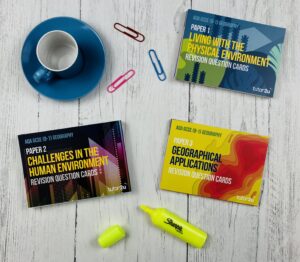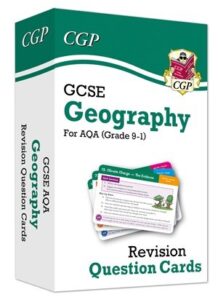In this recording, provided by the Rotal Geographical Society (RGS), we hear from 5 geography professionals speaking about their study and career paths to their jobs. You’ll hear the ways in which studying geography has given them useful skills to carry out their jobs and hear about the work and projects they engage in in their roles.
Vacancies
The Academy is committed to safeguarding and promoting the welfare of children and young people, and expects all staff and volunteers to share this commitment.
An Enhanced Disclosure (DSB check) from the Disclosure & Barring Service will be carried out for successful candidates.
Further information about the DBS check can be found by following this LINK. For all vacancies, please complete the application form and equal opportunities form available on the links below and email your application to Mrs O’Mullane, The Academy is unable to accept CV applications. Please note that only candidates short-listed for interview will be contacted. REGISTER WITH US if you are interested in joining Cottenham Village College in the future, please do register your details with Mrs O’Mullane, Principal’s PA, email: headspa@astreacottenham.org and we will contact you should a vacancy arise in your subject area.
Please download the relevant Application Form: (ELECTRONIC VERSION); (PRINTABLE VERSION) as well as the EQUAL OPPORTUNITIES form (and CRIMINAL DECLARATION FORM if necessary).
Job Listings
New GCSE Resources – Internet Geography
We have brought together a wide range of GCSE resources produced by Internet Geography. Students and staff have found their resources to be very useful in recent years.
In the ‘shared folder’ there is a range of resources to help learn, check your understanding, fill in gaps and revise the topics we study in class. Alongside guidance from you teacher these resources can help you catch up after an illness, complete units of work missed, check your understanding of classroom learning or to revise.
Please take a few minutes to take a look! You can find them by heading to your Geography ‘Team’ and clicking on the ‘Resources – Year 11’ tab at the top.
Please see your teacher is a printed hardcopy of any of the resources is needed.
![]()
Our 2023-24 Curriculum

Royal Geographical Society – Geography at Home
Resources and support from the RGS-IBG and beyond for teaching and learning #geographyathome
Support and resources from the Society
- Podcasts focusing on topics from wildfires, weather and the high street to plate tectonics, cities and the carbon cycle. These are perfect for your students to listen to current geographical themes and keep up to date with their subject knowledge.
- A wide range of articles and case studies based on geography in the news – these link directly to specification content and can help your students to read around topics presented in your online lessons.
- Our catalogue of online lectures by leading geographical experts for you and your students to watch, some of which are supported by resources that can be used to teach a lesson based on the lecture.
- You might like to encourage your students to think about geographical fieldwork within their home space. We have selection of ideas for school grounds fieldwork which could be adapted, plus ideas for creating your own fieldwork equipment at home.
- Use this opportunity to get to grips with GIS and pre-plan some lesson content to use with your students. We have a range of support for GIS, plus some information about using data sets.
- Our news roundup will help students stay aware of geographical stories in the press.
- Why not think about how you are presenting careers with geography to your students? We have a wealth of careers resources; this is an ideal time to show students how geography works in the real world.
- Our animations and interactives explain geographical processes and concepts in a visual way – excellent for getting parents to get to grips with the concepts your students are learning about at home.
- Our resource modules span Key Stages Two to Five and are perfect for getting students to work through at home with their parents – they provide background information about the topic, lesson plans and all the resources needed to teach up to six lessons.
- Remember to check our events pages for students and teachers for details of online event opportunities.
- Discovering Antarctica / Discovering the Arctic / Discovering Galapagos / Discovering Britain.
- Explore the Society’s film collection on BFI Player.
- Geography at Home worksheets and ideas for teachers
- Check out our brand new Geography Directions schools enrichment resource portal. Our Geography Directions blog applies geographical insights to better understand and explain contemporary issues. Each blog post is written by a relevant expert geographer and many draw directly on the latest research, as published in the RGS-IBG journals, book series, and beyond. This schools enrichment resource portal filters this content into easily accessible streams, based on topic areas at A-Level and GCSE, which can be used by teachers to enhance their knowledge, or shared with their students as part of their course materials and to provide stimulus for
Listening for Interest
There are an increasing number of podcast recordings of geographers talking about their professional areas of interest as well as their passions. Below we shall bring together recordings that will allow us to extend our understanding of classroom studies and/or may introduce interesting narratives on local, national and international issues of interest. Some recordings are aimed at an older audience, however, there is no reason why that should stop you tuning in!
Additional recommendations are available on the Internet Geography website.
- Plate tectonics and earthquake prediction with Dr Rebecca Bell
- Hazards and volcanic gas emissions with Dr Tom Pering
- Prisoners of Geography – RGS Schools Literacy Lowdown Review
- What are the big challenges for global water security? Professor David Hannah
- How is internal migration changing cities? Professor Michael Collyer
- What is rural gentrification? Professor Martin Philips
- How does international aid work? Dr Emma Mawdsley
- How is globalisation changing the countryside? Professor Michael Wood
Why AQA GCSE Geography?
“Studying geography gives students the opportunity to travel the world via the classroom, learning about both natural and social sciences along the way. They will understand how geography impacts everyday life and discover the key opportunities and challenges facing the world. Students will also develop academic and life skills from writing, teamwork and communication to analytical skills.” (AQA Website, 2020)
Click here to drop into the AQA website and have a look at the GCSE specification ‘at a glance’.
Online Resources
There are a growing number of very exciting reference websites and geographical tools online that may help with classroom studies or homework. Below we have gathered together just a few:
Revision:
When selecting revision tools please remember to select the AQA option. Please also remember that the case studies we study may be different from those in other schools. Please focus your attention on the case studies we have focused on.
Podcast – Seneca Learning Revision
Interactive – BBC Bitesize
Podcast – AQA Geography (Spotify)
Mapping & Exploring:
Organisations:
GCSE Revision
Our evidence suggests that those students who regularly attend after school revision sessions stand a greater chance of achieving their target grade. Our data is actually starting to show that those who attend these sessions regularly achieve a grade higher than their target grade!
Recently we have been exploring the use of SENECA. All Year 10 and 11 students are provided with a Seneca account and many subjects make use of this revision tool. Students are assigned pods to watch and multiple choice quizzes to complete. Usage data and quiz scores are shared with class teachers so gaps in knowledge and common misconceptions can be addressed in class.

YouTube is now offering a number of ‘channels’ that offer students valuable revision oportunities. Belwo are some that we are aware of and have confidence in.
A number of texts have been published to support students preparing for the AQA Geography examinations. While we do not use them in school we acknowledge that some of our students may benefit from them. Both Oxford Univeristy Press and CGP offer a selection of useful revision and practice books. The CGP ‘Exam Practice Workbook’ is particularly useful for preparing for the higher tariff exam questions.
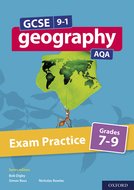
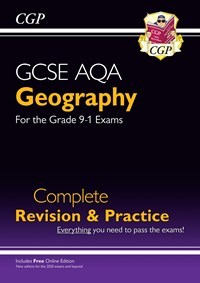
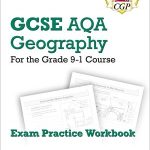
We thoroughly recommend owning a pack of revision cards from day one of the course. Past students have told us how useful it was to have regular access to them on long or short family journeys in the car or on the train etc. Possibly an activity for parents, carers, brothers and sisters to join in with! Wherever these cards are used they are undoubtedly a great tool for storing geographical information and aiding in its retrieval.
Iceland
The G eography Department has run a popular geography trip to Iceland for pupils studying GCSE Geography or those who have a real interest in the subject. Normally the trip is for 4 days and 3 nights and takes place each October half term (numbers permitting). During the trip we visit Vik, Dyrhólaey and the Golden Circle. Pupils have also had the opportunity to swim in naturally heated pools, visit the ‘The Wonders of Iceland’ exhibition in Reykjavik, be guided through the highly informative ‘Lava Exhibition’ and take part in the following excursions: Secret Lagoon, Eyjafallajokull Volcano, Gullfoss Waterfall, Kerid Crater, Skógafoss Waterfall, Sólheimajökull Glacier, Strokkur Geyser, Thingvellir Rift Valley. We are hoping to reintroduce this trip in academic year 2023/24.
eography Department has run a popular geography trip to Iceland for pupils studying GCSE Geography or those who have a real interest in the subject. Normally the trip is for 4 days and 3 nights and takes place each October half term (numbers permitting). During the trip we visit Vik, Dyrhólaey and the Golden Circle. Pupils have also had the opportunity to swim in naturally heated pools, visit the ‘The Wonders of Iceland’ exhibition in Reykjavik, be guided through the highly informative ‘Lava Exhibition’ and take part in the following excursions: Secret Lagoon, Eyjafallajokull Volcano, Gullfoss Waterfall, Kerid Crater, Skógafoss Waterfall, Sólheimajökull Glacier, Strokkur Geyser, Thingvellir Rift Valley. We are hoping to reintroduce this trip in academic year 2023/24.

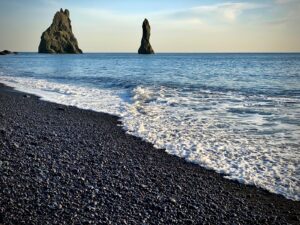


Geography Fieldwork
At GCSE we currently run two fieldtrips.
All GCSE students take part in two fieldwork days which are a compulsory element of the GCSE course and will be examined in Paper 3. We have to undertake one physical day and one urban day.
In recent years we have visited Walton-on-the-Naze to complete the physical fieldwork. We spend the day assessing the impact of coastal management and human impacts on the coastline. Sessions are led by staff from Flatford Mill Field Studies Centre.
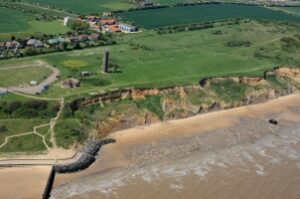
The second visit also takes place during school time and is currently based in Cottenham. Recently, the focus of this field study has been “Impacts of Growth in Cambridge on Cottenham”.
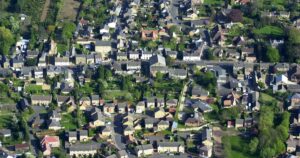
During both experiences’ students work individually to design their field study, gather data, practice geographical research techniques before analysing their findings, drawing conclusions and evaluating their study.
If you cant wait to get involved in geographical fieldwork why not visit the Field Studies Council Website for some fun ideas about how to make observations and gather data.
Reading for Interest
There are many exciting publications available for those wanting to explore the world through a geographical lens! Below are a some suggestions that would develop your knowledge and understanding of global development, sustainability in the 21st century, weather events, courageous expeditions and much more.
We also recommend magazines such as Geographical. This monthly publication includes articles and features that examine issues of the day and help us explore fascinating places and people. Finally, a longer list of reads can be found on the Internet Geography website.
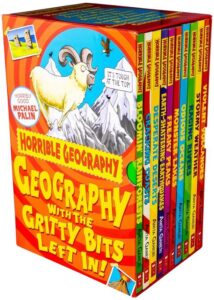

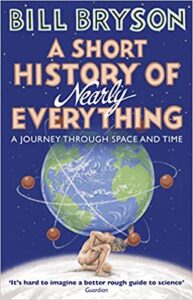


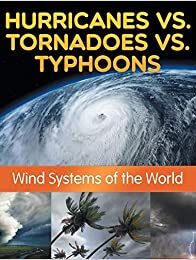
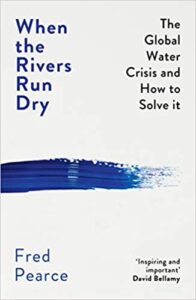
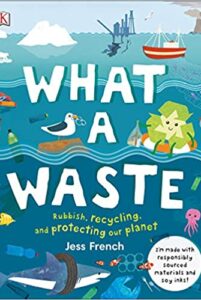
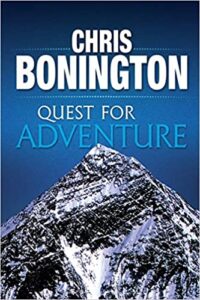
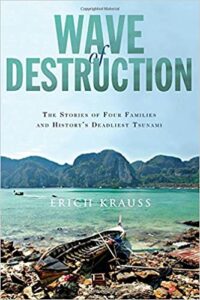


Geography Education Online (GEO)
 “GEO (Geography Education Online) is an innovative new website created by the Geographical Association (GA), for students studying for GCSE geography, A level geography or equivalent qualifications. GEO is designed to offer young geographers a new and engaging way to extend their geographical thinking and support examination success in 2021 and beyond.”
“GEO (Geography Education Online) is an innovative new website created by the Geographical Association (GA), for students studying for GCSE geography, A level geography or equivalent qualifications. GEO is designed to offer young geographers a new and engaging way to extend their geographical thinking and support examination success in 2021 and beyond.”
“The GEO website provides access to live online sessions with fieldwork tutors, live academic lectures and interactive subject content, free of charge. Teachers will find GEO the perfect complement to their teaching and support for students, whether at home or in schools and colleges.”
Why Geography?
“Geography is a broad based academic subject which will open up options for you in your future. Employers and universities see geography as a robust academic subject rich in skills, knowledge and understanding. As a subject linking the arts and the sciences it is highly flexible in terms of what you can combine it with, both at GCSE and A Level. If you choose to take geography on to university there are literally hundreds of courses to choose from and the range of career areas accessed by graduates of geography will probably surprise you.” (RGS, 2020)
You can read more about the benefits of studying geography:
- at the Royal Geographical Society with IBG website
- In the RGS ‘Geography at GCSE‘ overview
- at the Royal Scottish Geographical Society; and
- at the RGS’s Going Places with Geography booklet
For those considering studying geography The Geographical Association provides a wealth of information for GCSE and A level student looking to continue their geography studies.
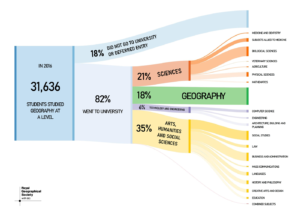
GCSE Texts & Resources
To help us explore the AQA Geography (8035) syllabus in class and at home we make regular use of the Oxford University Press textbook: GCSE AQA Student Textbook.
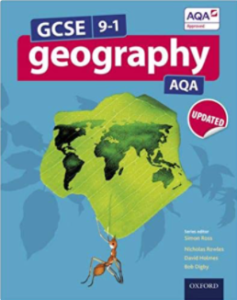
Ordnance Survey Map Skills
As geographers, one of the key skills that you need to learn is how to read an Ordnance Survey map. These skills will be tested throughout the key stages and are a common feature in examinations.
Some of the key map-
- Using Map Symbols
- Giving Grid References (4 and 6 figure grid-
references) - Understanding contour lines and how relief is shown on a map
- Measuring distance on a map
It is important to keep practicing these key skills and the best way is to use an actual OS map. However there are some useful online resources to help you recap and also learn these skills.
Map Skills Quizzes
Try the following links to practice your map skills…
Mapzone –
KS3 BBC Bitesize – OS Map Skills – you can revise your OS map skills here and get some test questions
GCSE BBC Bitesize –
Map Reading Skills Quiz –
There are some useful videos below to help you recap and learn many of the key Ordnance Survey map skills that you need to become confident in.
-
Excellence in Pupil Development Award with Optimus Education
We have been working towards the Excellence in Pupil Development Award for the past year and we are pleased that our final verification day is now fixed for 27 March 2024. The whole Personal Development …
Read More » -
GCSE Geography Fieldwork – May 2024
-
A Historic Fiction Theme
-
Year 7 Activities Week 2024
-
Public Health Announcement from the Local Authority
-
Excellence in Pupil Development Award with Optimus Education
We have been working towards the Excellence in Pupil Development Award for the past year and we are pleased that our final verification day is now fixed for 27 March 2024. The whole Personal Development …
Read More » -
GCSE Geography Fieldwork – May 2024
-
A Historic Fiction Theme
-
Year 7 Activities Week 2024
-
Public Health Announcement from the Local Authority
 Cottenham Through aspiration and endeavour, we flourish
Cottenham Through aspiration and endeavour, we flourish
 Cottenham Through aspiration and endeavour, we flourish
Cottenham Through aspiration and endeavour, we flourish
